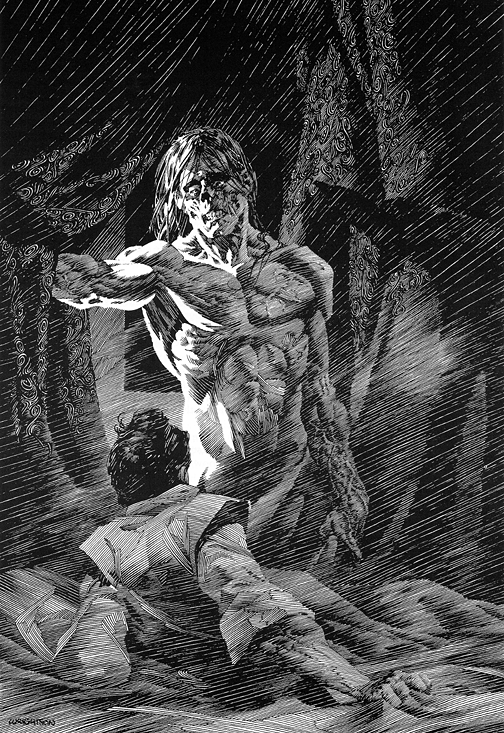For this week in Literature of
horror, fantasy and sci-fi I read the “Kwaidan”, a series of Japanese horror
stories. The stories I read, I found to be very fascinating I didn’t think they
were scary per say, in fact I found them to be more supernatural occurrences,
so I guess they were “ghost stories” in every sense of the word. I also
realized that many of the stories included some romantic aspect to them for
instance there was one story about a man who’s fiancé died and her spirit
returned to him years later after he made her a promise that if she was to
appear to him again in the future he would marry her. It’s stories like that, that make the
collection less horror and more paranormal it’s a really fun interpretation of
the atypical romantic or ghost story, by combining them it sheds a little light
on both sides of the coin and gives them both an interesting twist. I really
found it strange however that the stories weren’t terrifying. I guess expected
more of a horrific vibe seeing as most of the horror movies in the States are
based on horror movies from Japan which, if you watch the Japanese originals,
are some of the most terrifying movies I, or most of the American public, have
ever seen.
I
researched Japanese horror a bit after reading the Kaidan tales and I found out
some interesting things about Japanese horror fiction and Japanese
culture. For instance the Kaidan
actually dates all the way back to the Edo and Meiji periods in Japan as sort
of traditional ghost tales. Horror fiction seems to be a very deeply imbedded
portion of Japanese culture not only because it dates back to the 1600s
(actually horror fiction in Japan is evidenced to have first appeared in the
Heian period (794-1184)) but because even today the people of Japan are completely
riveted by the idea of the Japanese ghosts or Yurei. The nature of Japanese
horror seems to be psychological and suspenseful with many themes found in folk
religion such as poltergeists, exorcism and shamanism. I think when you
consider the nature of traditional Japanese ghost stories the Kaidan makes more
sense, because they all have to do with the idea of rituals and unfinished
business which tie the ghost to the physical plane. All in all the Kaidan was a fun read, not
particularly scary I would see but rather more eerie or spooky, things that if
it happened to you it would make your hair stand on end but reading it didn’t
really have a strong effect on my nerves.



